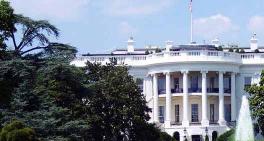Florida Unveils Registered Paralegal Program
Continuing Education
The Florida Bar will begin administering a voluntary program to allow qualified paralegals to receive the designation of Florida
Registered Paralegal. Lori Holcomb, head of the Florida Registered Paralegal program at The Florida Bar, said already about 300 people have requested applications, which will be sent out once the program officially begins. Holcomb said she is expecting an avalanche of applicants wanting to download the form from The Florida Bar Web site on kick-off day, March 1.
“We ask those downloading the form to be patient,” said Holcomb. “If you have a delay, please try again.”
Paralegals are employed by attorneys to perform substantive tasks for which the lawyers are responsible.
Approved by the Supreme Court in November 2007, the Florida Registered Paralegal Program provides for registration of paralegals who meet minimum educational, certification or work experience and who agree to abide by an established code of ethics. The goal is to better serve the public by establishing high professional standards. The program provides a registry of paralegals but does not establish regulation of paralegals or define the work paralegals may do.
Those seeking to become a Florida Registered Paralegal must fill out an application form that can be downloaded from the Bar’s Web site beginning March 1 (www.floridabar.org/frp) or request the form by e-mail.
Additionally, there is a $150 application fee. Holcomb said after registration papers are filed and if everything is in order, it should take a couple of weeks to process an application. Applicants who are approved will be notified by mail with certificates and welcome packets.The program sets up a two-tier system for paralegals and also creates a disciplinary system and a Code of Ethics and Responsibility.
The first tier encompasses paralegals with education, training or work experience and who, under the supervision of lawyers, perform delegated, substantive work for which the lawyers are responsible.
Tier two paralegals have to meet education and work experience requirements or be certified by the National Association of Legal Assistants (NALA) or the National Federation of Paralegal Associations (NFPA).
Additionally, for the first three years of the program, paralegals who are able to show substantial experience, but who don’t meet the education or certification requirements, will be able to become Florida Registered Paralegals under a grandfathering provision.
Those who receive the designation will be listed on The Florida Bar Web site.
To remain a Florida Registered Paralegal, 30 hours of continuing education courses will be required over a three-year period, with five of those hours having to be in professionalism or ethics courses.
The new Chapter 20 of the Rules Regulating The Florida Bar establishing the program does not set forth the duties paralegals may perform or deal with the fees that can be charged or awarded for the work they do. As is the case now, the primary responsibility for monitoring the work of paralegals — whether Florida Registered Paralegals or not — rests with the attorneys who employ or supervise them.
Holcomb said the program will give the public additional assurance about the quality of legal services they receive.
“When someone is a Florida Registered Paralegal, you know they have education or training to provide a higher level of service in assisting attorneys to serve their clients and the public,” said Holcomb.
To request a copy of the application electronically, send an e-mail to frp@flabar.org. The form will also be available on The Florida Bar Web site
(www.floridabar.org/frp) beginning March 1. Those with questions should
call (850) 561-5840.
Related listings
-
N Carolina elections board back in court in power struggle
Continuing Education 07/25/2018The repeatedly altered composition of North Carolina's elections board returned to court Thursday as a proxy for the lengthy power struggle between Democratic Gov. Roy Cooper and the Republican-dominated legislature.A panel of three trial judges list...
-
Court questions whether Maine has money to expand Medicaid
Continuing Education 07/19/2018Maine's high court is weighing whether to allow the LePage administration to continue to block federal funding for voter-approved Medicaid expansion. Justices on Wednesday heard the administration's arguments against a court order r...
-
Ex-Malaysia leader Najib charged with breach of trust, graft
Continuing Education 07/01/2018Former Malaysian Prime Minister Najib Razak was charged Wednesday with criminal breach of trust and corruption, two months after a multibillion-dollar graft scandal at a state investment fund led to his stunning election defeat.He pleaded not guilty ...

New Rochelle, New York Work Accidents Lawyers
It doesn’t matter what type of work you do or where you work, you can always be at risk of injuring yourself at your work no matter how safe you may think it is. Accidents in the workplace are often caused by unsafe work conditions arising from ignoring safety rules, overlooking maintenance or other negligence of those in management. Work accidents can cause serious injuries and sometimes permanent damage. Some extremely serious work injuries can permanently hinder a person’s ability to get around and continue their daily duties.
Factors that affect one’s quality of life like place of work, relationships with friends and family, social standing can all be taken away quickly by a work injury. Although, you may not be able to recover all of your losses, you may be entitled to compensation as a result of your work injury. In order to ensure that you and your loved ones receive the best outcome, make sure you have the help of an experienced New Rochelle, New York workplace injury lawyer you deserve. We can get you on your way to filing a claim against the responsible party. If you have been injured at your place of work it is important to know your options by seeking legal action. Kommer Bave & Ollman LLP offers a free case evaluation where we will answer any questions you may have and explain your legal options. Call us at 914-633-7400 or contact our firm to schedule a free consultation with an experienced attorney.




